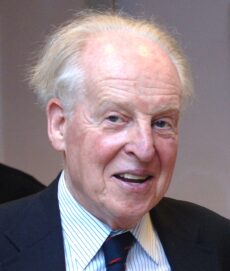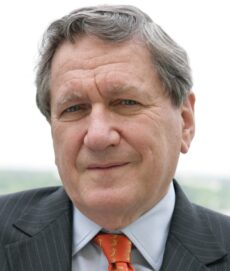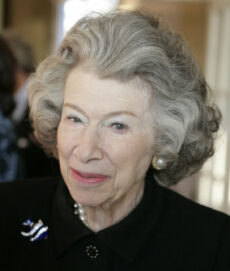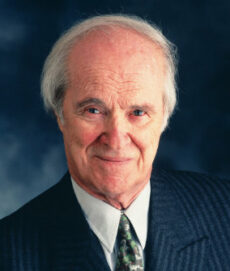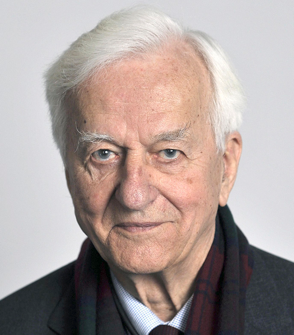
Richard von Weizsäcker (1920-2015) was a founding chairman of the American Academy in Berlin.
Born in Stuttgart, in 1920, Weizsäcker studied philosophy and history at Oxford University and in Grenoble, France. After serving as a captain in the German Army Reserves, he continued his studies in law and earned his JD in 1955.
From 1969 to 1981, Weizsäcker was a CDU member of the German Bundestag. He was subsequently vice president of the Bundestag from 1979 to 1981, and governing mayor of West Berlin from 1981 to 1984. In 1984, he succeeded Karl Carstens as president of Germany and was elected for a second term in 1989. Weizsäcker’s presidency was marked by strong advocacy of democratic principles, tolerance, and confrontation with Germany’s historical and social responsibilities.
President Weiszäcker was actively involved in politics and charitable affairs and has served on a number of international commissions, most notably as chairman of the independent working group on the future of the United Nations, and as one of three “Wise Men” appointed by former European Commission President Romano Prodi to consider the future of the European Union. The author of several books, his memoir From Weimar to the Wall: My Life in German Politics was published in 1999.
Weizsäcker received dozens of honors throughout his political career, including more than ten honorary doctorates from institutions including The Johns Hopkins University, the Weizmann Institute of Science in Israel, Harvard University, and the universities of Oxford and Cambridge. The Richard von Weizsäcker Professorship at the Paul H. Nitze School of Advanced International Studies (SAIS) is named in his honor, as is the Richard von Weizsäcker Distinguished Visitorship at the American Academy in Berlin.

